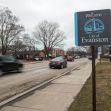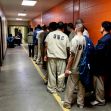The Chicago suburb of Evanston has just become the nation's first city to implement a reparations program for its Black residents. The program is the city’s first step in what it hopes to be several initiatives toward making right the city’s history of segregation and discriminatory practices.
Evanston’s city council voted early this week on a budgetary measure titled the Restorative Housing Program that would make $400,000 available to select Black residents. The measure passed in a near sweeping vote of 8-1. The $400,000 allocation would be split up into grants of $25,000 that could be used for down payments on housing, home repairs, and mortgage payments. Evanston’s Local Reparations Plan states that the Restorative Housing Program “acknowledges the harm caused to African-American/Black Evanston residents due to discriminatory housing policies and practices and inaction on the part of the City from 1919-1969.”
The effort of the grants is to allow qualifying African Americans to take advantage of homeownership opportunities that were inaccessible to them because of redlining laws from the city’s history. Additionally, the program seeks to “build intergenerational equity amongst Black/African-American residents'' and “revitalize, preserve and stabilize Black/African-American owner-occupied homes in Evanston.” The program also hopes that by offering this grant, it will keep African Americans in the city and will encourage homeownership and wealth accumulation within the African American community.
Qualifying applicants must belong to the African American community and have either lived or had ancestors who lived in Evanston between 1919 and 1969. Residents can also provide proof that they suffered from housing discrimination at the hands of the City’s housing policies and procedures if they lived in the city after this period.
The Restorative Housing Program is the first step in what the city hopes to be several programs in its reparation efforts. The city has promised to dedicate $10 million over the next ten years to reparations.
Alderwoman Robin Rue Simmons explains of the program, “This historic vote is the culmination of nearly two years of community input, conversation, and hard work, but it follows decades of harmful policies and practices that impact Black Evanston families to this day. While we acknowledge we have a long way to go to repair all of the damages done by racism, we also know this program will make a real and lasting difference in the lives of some of those harmed by past injustices and will set the stage for additional reparative measures in the future.”
Evanston’s Alderwoman Ann Rainey has said of the program, “I’m proud of our community for taking this bold and courageous action to begin the process of remedying racial disparities that have harmed our Black community for decades.”
Funding for the program was made possible through a mixture of donations and a 3% tax collected from sales of recreational marijuana.
A local organization, Evanston Rejects Racist Reparations, created by former mayoral candidate Sebastian Nalls, has fought back against the reparations program claiming that it does not do justice to the suffering endured by Evanston's African American Community.
Nalls explains that the program is not taking into consideration black voices and that the current program is “not real reparations.” Nalls explains, “We have come together as residents to fight against fake reparations. We reject racist reparations and demand a better, more responsive, more complete program that provides access to reparations acts of actual repair to Black folks.”
In a poll conducted by the Associated Press - NORC Center for Public Affairs Research, a majority of Americans have expressed that they do not believe the government should pay cash reparations. Only 29% of those polled agree with a reparations plan.
Unsurprisingly, the poll found that an overwhelming amount of African Americans (74%) believe in a reparations program, while 44% of Hispanics feel the same and only 15% of white Americans favor the move. While many Democrats have expressed favor in reparation programs, former Senate Majority Leader Republican Mitch McConnell has stated, “I don’t think reparations for something that happened 150 years ago, for whom none of us currently living are responsible, is a good idea.”
Evanston's landmark move to pass a reparations program comes on the heels of several deaths of Black individuals at the hands of white police officers. The city hopes its move in implementing a first-of-its-kind reparations program will be a model that other cities across the nation will utilize.






